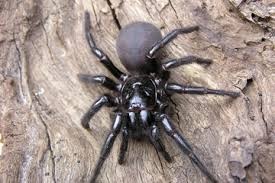
Source: LiveScience.com
Australia is home to some of the most dangerous insects in the world.
Although spiders are known for their deadly venom and mosquitoes are known for spreading malaria and other diseases, there are some insects that seem harmless but claim more lives every year.
Whether you live in regional Australia or a big town or city, make sure your home is protected with a good quality insect screen from Freedom Screens and avoid one of these creepy crawlies nesting in your home.
- Funnel-web spiders. This spider’s venom contains delta-hexatoxin, a toxin which can impair the nervous system and cause death.
- Redback spiders. Although this arachnid bites mostly when provoked, the injury could prove to be fatal. Symptoms such as swelling and sweating kick in within five minutes of the bite, and result in death.
- Paralysis Ticks. While this insect can cause paralysis, cases of allergic reactions— which can cause breathing problems—are more common.
- Honeybees. When honey bees sting, it can result in a throbbing welt. In some cases, its venom can result in a serious allergic reaction.
- Bull ants. These are larger than your regular ants. Because of that, they can inject more venom into their victims, who, in turn, can have a more serious allergic reaction.
- Giant centipedes. Although human casualties due to a bite of a giant centipede are relatively rare, they are still extremely painful and can cause nausea and fever.
- Mosquitoes. While mosquito bites are no more than an itchy annoyance, these pests can transmit diseases such as malaria and dengue fever to humans.
- European Wasps. These insects can sting you more than once. Their bites can cause a severe, life-threatening allergic reaction known as anaphylaxis.
- Flies. Although the common house fly doesn’t bite, it lands on manure, rotten food, and rubbish. Consequently, they can spread illnesses such as typhoid fever, salmonella, and cholera among humans.
- White-tailed spider. Like the redback spider, this arachnid also bites when provoked. Its bites resemble those of honey bees: a burning sensation followed by some swelling.
Source: http://www.mortein.com.au/advice/expert-advice/most-dangerous-insects/